- Posted on April 25th, 2024
Norfolk and Norwich Festival
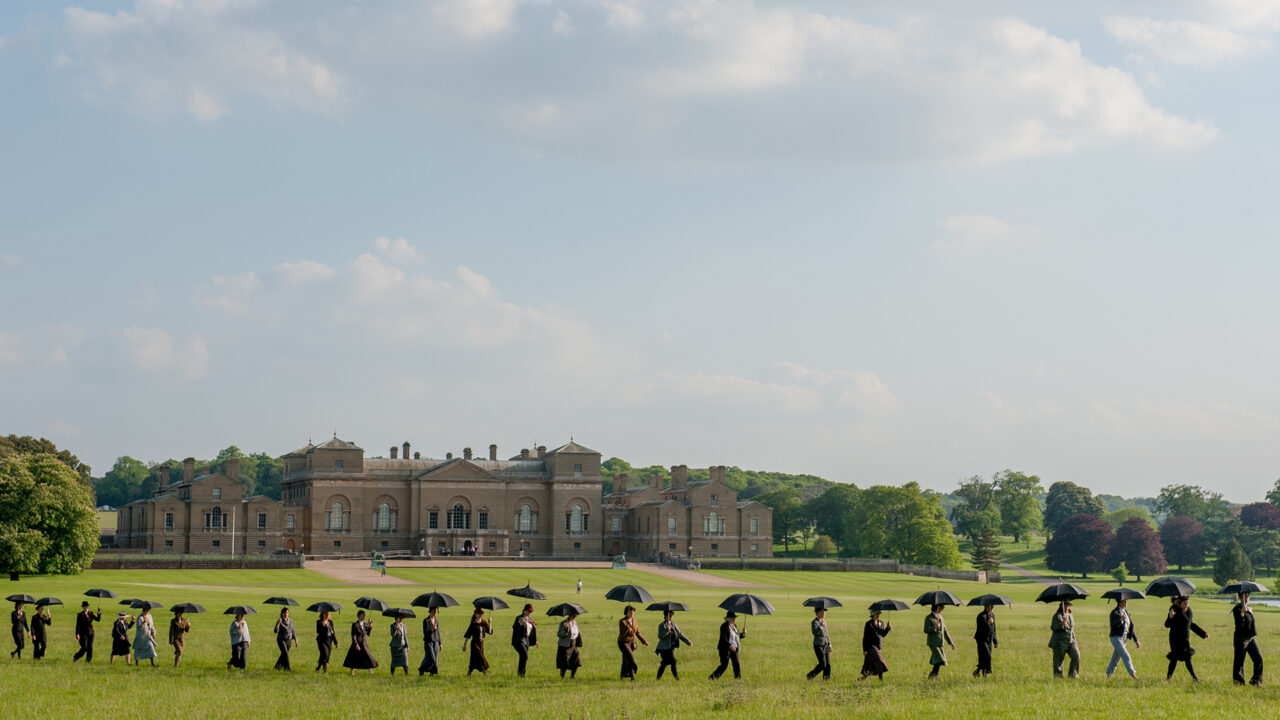
“I think a festival, as a sort of temporary world, is really well placed. It is a sort of a moment in time to take some risks, to try some things, and to push the possibilities….” – Mark Dehbigh
Norfolk and Norwich Festival (NNF) is a 17 day multi-arts festival that takes place in May, based in the city of Norwich in Norfolk. The festival presents a powerful opportunity to bring people together from different parts of the city and beyond, creating a space where attendees can have a conversation about the environment through their experience of the festival. Festivals can be a space where producers can push the boundaries of sustainability in the temporary world created.
Norfolk and Norwich Festival participated in Arts Council England Environmental Responsibility Programme’s Accelerator, a project which supported two cohorts of 10 organisations/consortia on environmental leadership. The programme aimed to advance sustainable cultural practice by a focus on extending and testing innovative ideas.
Through the Accelerator programme, NNF moved towards transformative thinking. The festival team became empowered to push the boundaries of their sustainable practice, from practical actions like exploring more sustainable energy supplies, to playing an active role in building collaborations with other festivals to grow sustainability ambition and practice. The festival has made far more progress than originally anticipated from taking part in the programme, and across broader aspects of sustainability, through building on their learning, developing confidence and through connecting with broader networks both in the UK and Europe.
“Now I feel that we are making some much bigger and broader progress here than I ever imagined we would do when I when I first applied to Accelerator.”
What approach was taken?
NNF’s Accelerator journey began with the desire to reduce their energy impacts. Their goal was to do this through accessing the mains power, or the national grid, to remove the need for bringing generators to the festival to generate their own energy. Their intention with Accelerator was to be prepped with the tools and resources to make this idea possible. The festival is hosted in a city centre park in Norwich, an area owned by the council. NNF held conversations with Norwich City Council to discuss how they could connect mains power to the festival to avoid the use of generators. At an early stage, the council was then given the opportunity to apply for some funding via the Towns Deal Fund, and integrated the need for mains power to the park as part of the application. The application was successful, gaining the funding to achieve this. A further request for mains water to the park was also made, which has now been installed.
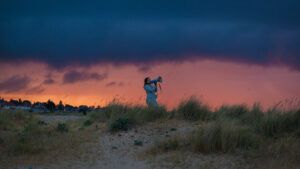
COVID-19 and creating opportunities for organisational change
The lockdowns meant that they were not able to physically hold their annual festival, however, this gave the organisation time to focus on new ideas for sustainability due to a deep enthusiasm for organisational change.
“We have champions for a better world across all departments really. [People] who will keep things going in their individual conversations.”
“Equality, Diversity and Inclusion (EDI) and other aspects as well that are important to the values and the mission of the organisation.”
With a particular interest from cross-organisation and global-in-outlook groups, EDI and environmental working groups. The team had conversations about waste management, and wanted to help with myth busting around waste, inspiring people to ask more questions about where their waste goes. They visited a local facility to ask questions and to see how the waste that comes to the facility is sorted. For this year’s festival, they planned to remove the bins, instead offering a place for visitors to see what happens to their “resources”, and how it is separated in a very experiential way.
In addition to improving the infrastructure of the festival, they implemented “Green Trading Standards” for all their food stalls, which meant that all food served is meat and fish-free and all serve-ware was recyclable or compostable. All domestic and international artists are encouraged to travel to the festival by train, with an offer of subsidised travel through partnership with Greater Anglia. Visitors are also encouraged to use public transport to come to the festival, with ticket holders able to take advantage of discounted use of Beryl bikes and e-scooters throughout May.
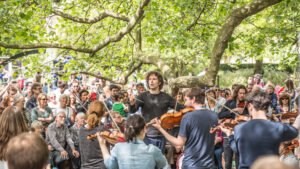
Taking inspiration from other festivals
“I was inspired by a trip to DGTL festival in Amsterdam last year, about the importance of language. So when we don’t use words like “waste”, “rubbish” and “landfill”. [Then] We can start talking about waste as a resource and how that dynamic and relationship to materials or food or water can change.”
This year’s festival took inspiration from the innovative approach to sustainability by DGTL festival, and focused on the importance of organising waste streams and engaging the audience in the process. NNF sought to rethink our use of language to understand ‘waste’ as a ‘resource’ that can have a life beyond our use. Audiences were given an interactive experience joining in with sorting and separating waste, (processes that usually happen at waste facilities), for example taking cups and food waste to dedicated spaces for sorting.
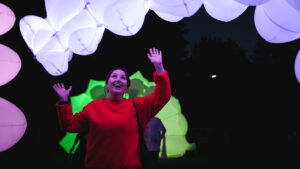
The Importance of Collaborations
Through the programme, Norfolk and Norwich Festival connected with Rock in Rio as their expert mentor, so that they could draw inspiration and learning from their festivals in Brazil and Portugal. Rock in Rio led a series of sessions to share best practices and draw insights from NNF’s own staff, which helped to galvanise concepts and ideas from across the organisation. The engagement opportunity inspired action and practice, and Norfolk and Norwich festival are keen to share their own learning with others. They are members of Without Walls, and Vision 25, growing their networks with a focus on sustainability and environmental change in the outdoor arts sector. In placing a central value in knowledge sharing, collective action and learning best practices, NNF have created their own network focused on sharing knowledge about presenting work in urban settings. In these settings there is less direct control, and a greater emphasis on working alongside service providers. This new network aims to connect urban festivals interested in focussing on sustainability and environmental change in a space and forum where they face similar challenges and opportunities.
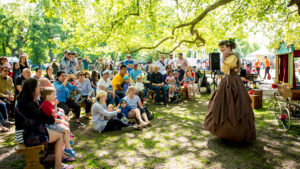
Advice for others
Norfolk and Norwich Festival are committed to helping others to understand that they are not the only ones working on sustainability issues and aim to create connections where they can. They recommend looking for opportunities to share work and learn from others with a common goal, and to capitalise on opportunities and enthusiasm for change within organisations.
“Advice for others would be to make a start. Find others who are working in similar fields, there will be conversations; resources and templates and advice out there to support any of your actions. Look for opportunities, look for the quick wins, look for the gaps that might turn into something else. [Look for] the opportunity to collaborate or share any of this work with others. I think this is always invaluable because it really energises and contributes to a common goal and that common purpose, which is crucial, really, because without that,you can lose focus or energy really, really quickly.”
Norfolk and Norwich Festival will run May 10-26, 2024.
Find out more about the Arts Council England programme
IMAGE CREDITS (Top to bottom): Voice Project, JMA Photography // Signal on Sea, Photo by Malachy Luckie // Aurora Orchestra, Photo by Dibs McCallum // Unfurl, photo by Malachy Luckie // Garden Party, Like a Tree, JMA Photography.

